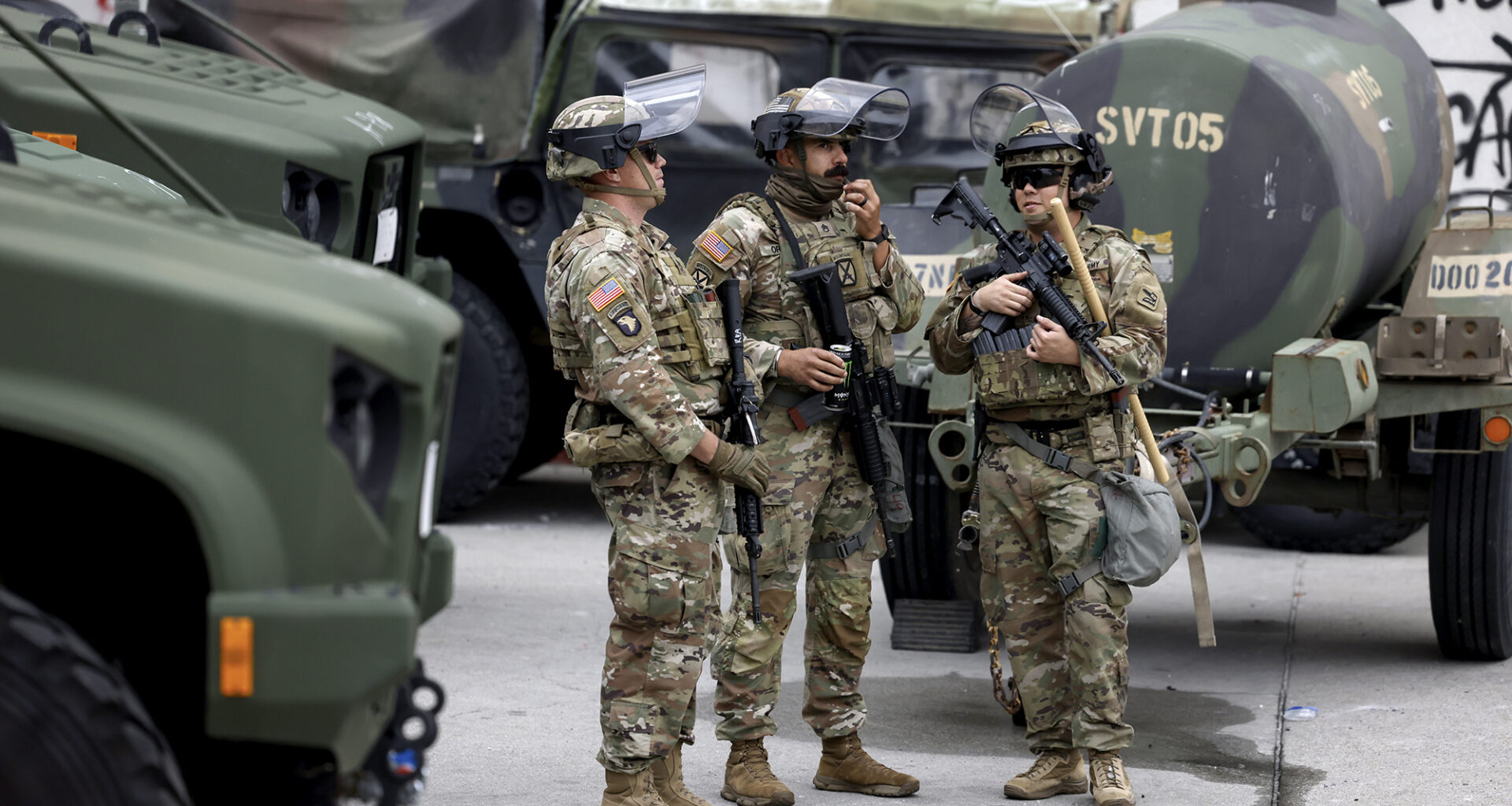The possibility that President Donald Trump will deploy National Guard troops in San Francisco as part of a nationwide crackdown on crime is intensifying — but recent crime data doesn’t support his claim.
During an interview on a Fox News show earlier this week, Trump said he was eyeing San Francisco next to send the National Guard, adding that he had “unquestioned power” to do so under the Insurrection Act. Trump so far has deployed units in Los Angeles, Chicago, Portland, Washington, D.C., and other Democratic-leaning cities, although he has not used the Insurrection Act to do it.
State and city leaders in California oppose Trump’s plan: Gov. Gavin Newsom told reporters Wednesday he would file a lawsuit “within a nanosecond” if Trump deployed troops, and San Francisco Mayor Daniel Lurie said it “will do nothing to … make our city safer.”
In an interview with CalMatters, San Francisco District Attorney Brooke Jenkins said crime in the city has fallen in “every single category.” She questioned the effectiveness of the National Guard to curb crime since its troops can’t make arrests or investigate crimes.
Crime data from the San Francisco Police Department show that total crime rates decreased more than 26% so far in 2025, and rates have dropped across the board, except for sex trafficking.
Jenkins said her main concern is that “inhumane” immigration enforcement could serve as a precursor for Trump to send the National Guard. On Wednesday the Trump administration sent federal immigration enforcement agents to a nearby Coast Guard base in the Bay Area, according to the San Francisco Chronicle, where they reportedly are preparing an enforcement sweep.
Jenkins: “There has to be civil unrest in San Francisco, and what we know and have seen is that U.S. Customs, Border Control and ICE are being deployed first in a manner that creates chaos and provokes arrest.”
Whether or not crime is decreasing in a city depends on various factors — such as what type of crime is being measured, in what regions and over what period of time. But San Francisco is experiencing “some of the lowest crime numbers” in at least a decade, said Magnus Lofstrom, the policy director of criminal justice and a senior fellow at the nonpartisan Public Policy Institute of California.
Using data from the California Department of Justice, Lofstrom said that during the last quarter of 2024, violent crime in particular decreased by 20% compared to the last quarter of 2023, and property crime lowered by 18%. Shoplifting, however, ticked up during the same period.
Lofstrom also said that while he suspects the presence of uniformed personnel, such as police officers, act as “a deterrence to crime in the short-term,” it is unclear if the effect of National Guard troops in San Francisco “might deteriorate trust in law enforcement and deteriorate community relations.”
Lofstrom acknowledged that whether someone is a personal victim of crime influences their perception of crime rates as well.
Lofstrom: “There is visible evidence of social problems, homelessness and drug use for example. Those evoke concerns about public safety. … Those are factors that contribute to a perception of higher crime or increase in crime even though the data may be pointing towards improvement.”
More on the National Guard: California Attorney General Rob Bonta said Trump is deploying troops to “target those people who didn’t support him” in an interview with CalMatters’ Mikhail Zinshteyn Wednesday. Read more on what Bonta had to say about the state’s efforts to stop Trump’s use of the California National Guard.

